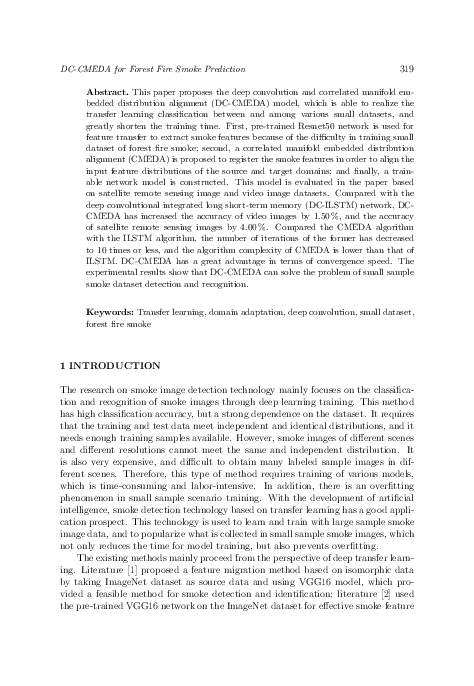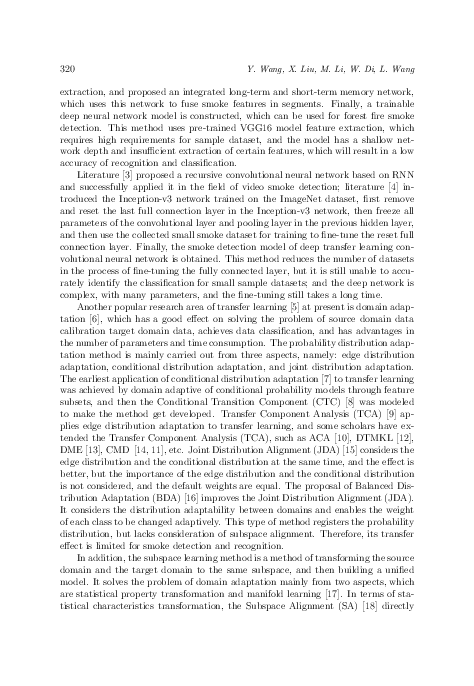Deep Convolution and Correlated Manifold Embedded Distribution Alignment for Forest Fire Smoke Prediction
keywords: Transfer learning, domain adaptation, deep convolution, small dataset, forest fire smoke
This paper proposes the deep convolution and correlated manifold embedded distribution alignment (DC-CMEDA) model, which is able to realize the transfer learning classification between and among various small datasets, and greatly shorten the training time. First, pre-trained Resnet50 network is used for feature transfer to extract smoke features because of the difficulty in training small dataset of forest fire smoke; second, a correlated manifold embedded distribution alignment (CMEDA) is proposed to register the smoke features in order to align the input feature distributions of the source and target domains; and finally, a trainable network model is constructed. This model is evaluated in the paper based on satellite remote sensing image and video image datasets. Compared with the deep convolutional integrated long short-term memory (DC-ILSTM) network, DC-CMEDA has increased the accuracy of video images by 1.50 %, and the accuracy of satellite remote sensing images by 4.00 %. Compared the CMEDA algorithm with the ILSTM algorithm, the number of iterations of the former has decreased to 10 times or less, and the algorithm complexity of CMEDA is lower than that of ILSTM. DC-CMEDA has a great advantage in terms of convergence speed. The experimental results show that DC-CMEDA can solve the problem of small sample smoke dataset detection and recognition.
reference: Vol. 39, 2020, No. 1-2, pp. 318–339


